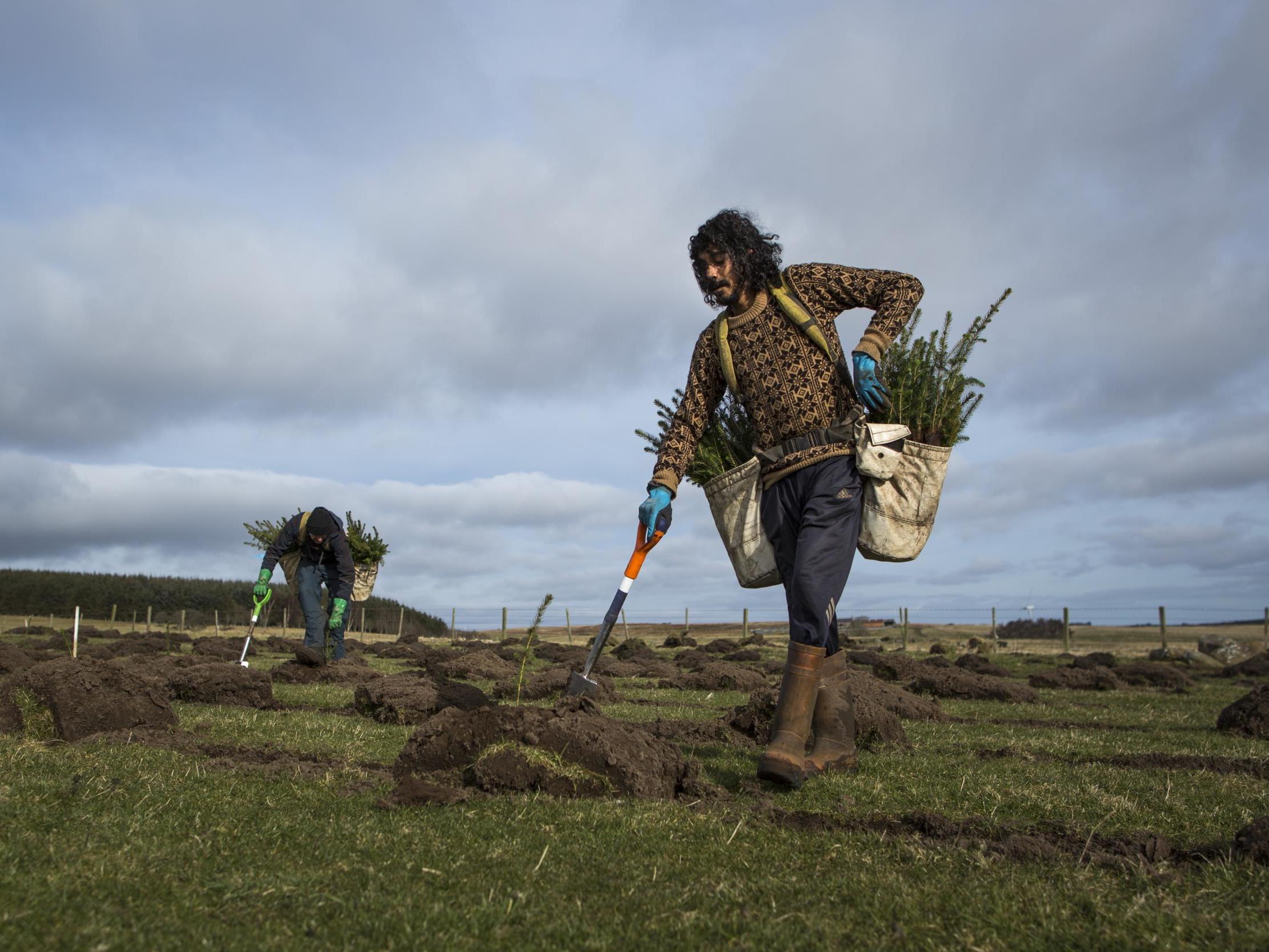Trees must be planted across area half the size of London every year to offset climate damage of farming, experts say
Mass woodland creation scheme needs to start immediately, government told

Your support helps us to tell the story
From reproductive rights to climate change to Big Tech, The Independent is on the ground when the story is developing. Whether it's investigating the financials of Elon Musk's pro-Trump PAC or producing our latest documentary, 'The A Word', which shines a light on the American women fighting for reproductive rights, we know how important it is to parse out the facts from the messaging.
At such a critical moment in US history, we need reporters on the ground. Your donation allows us to keep sending journalists to speak to both sides of the story.
The Independent is trusted by Americans across the entire political spectrum. And unlike many other quality news outlets, we choose not to lock Americans out of our reporting and analysis with paywalls. We believe quality journalism should be available to everyone, paid for by those who can afford it.
Your support makes all the difference.An area nearly half the size of London should be planted with new trees every year to help tackle climate change, environmental experts have said.
Covering 70,000 hectares with new woodland across the UK annually would result in a net total of zero carbon emissions from farming, according to the think tank Green Alliance.
London covers 159,000 hectares.
Calling for more ambitious action on greenhouse gas emissions, a report by the alliance also advises the government to introduce a raft of measures including urging people to eat “less and better” meat and more plant-based foods.
The mass tree-planting scheme needs to start immediately to meet the National Farmers Union’s target of net zero carbon emissions from land use by 2040, the alliance believes.
Agriculture is one of the UK’s biggest greenhouse gas-emitting sectors and, together with other rural land use, in 2016 it produced more than four times the emissions of all UK industry.
Most other sectors of the economy have decarbonised over time, the report notes.
“The rapid rollout of measures in land management, combined with a shift to healthier diets, could cut net emissions from land use by nearly 60 per cent,” the report says.
Caterina Brandmayr of Green Alliance said: “UK farmers and land managers will be the main agents in rapidly cutting greenhouse gas emissions from land use. But the government needs to give them a stronger business case to act and support them through the transition, with incentives to innovate.”
Changes the group advises include:
- Planting the equivalent of twice the area of Sheffield in trees each year across the UK
- Extensive peatland restoration and ending peatland burning
- New support for lower carbon farming methods, backed up by changes to consumer and business demand and trade deals that specify high environmental standards
The Green Alliance recommends incentives for land managers to invest in low-carbon farming, peatland restoration and new woodland.
The moves would enhance biodiversity, reduce flood risk and increase farm productivity, it claims.
Sir Graham Wynne, former member of the UK Committee on Climate Change, said: “Climate action is a big opportunity for UK farmers and land managers. If we get it right, new, low carbon models of land management will make farms more productive and resilient to the effects of climate change.
“Delay will only make the challenge greater and more expensive. It takes time for trees to grow and soil to recover. This transformation needs to start now, not in the future.”
Deputy NFU president Guy Smith said farmers could not achieve the target in isolation.
“It will be a challenge, and we urge government and other stakeholders across the food chain to work with the agricultural industry to help deliver our net zero aspiration,” he said.
Join our commenting forum
Join thought-provoking conversations, follow other Independent readers and see their replies
Comments